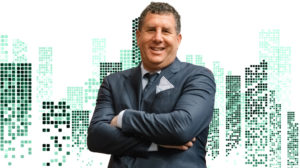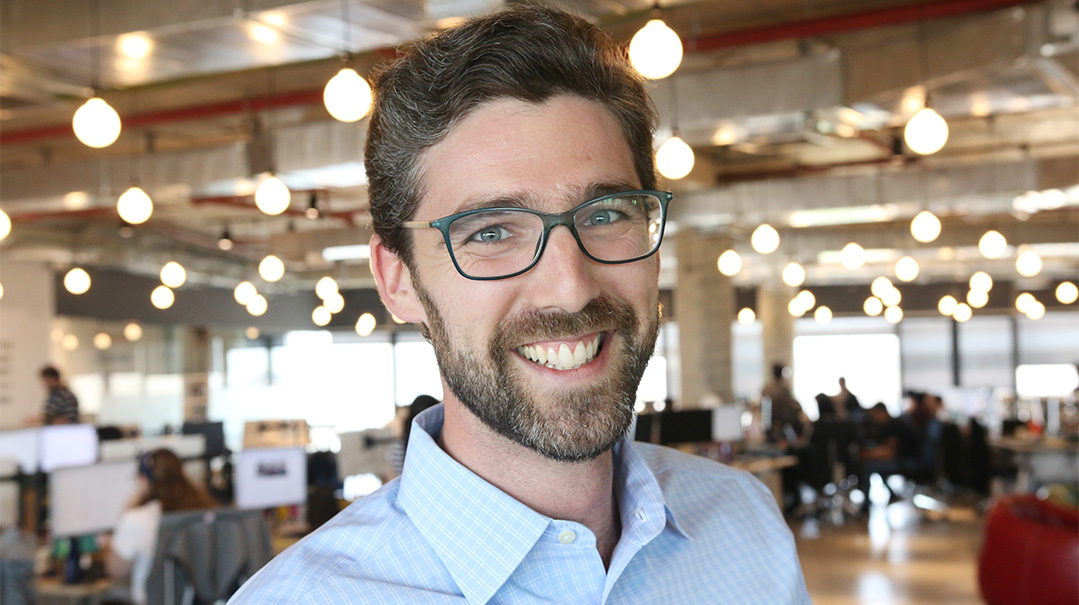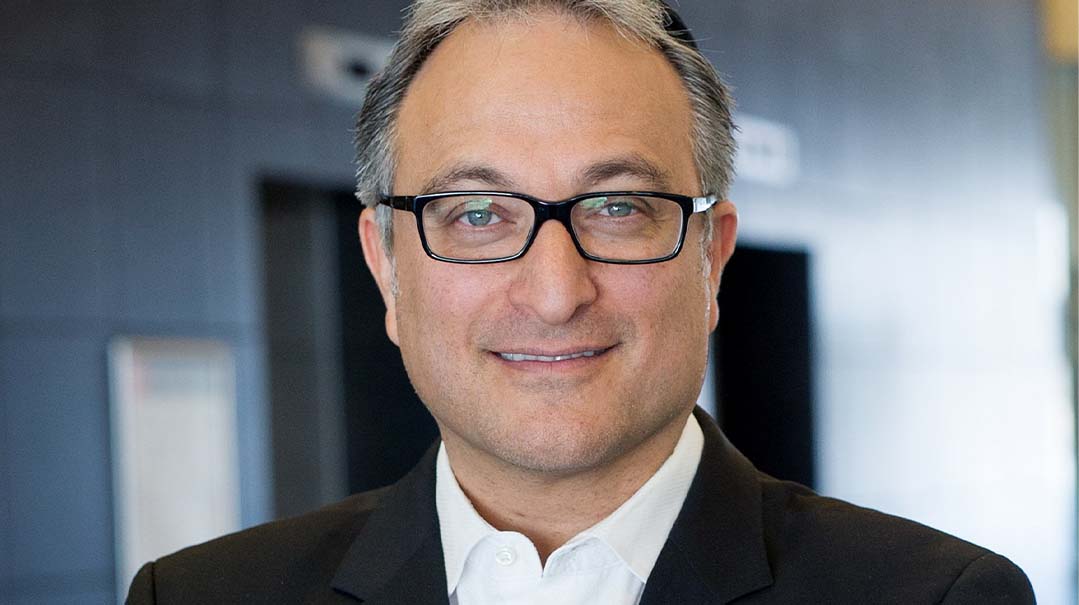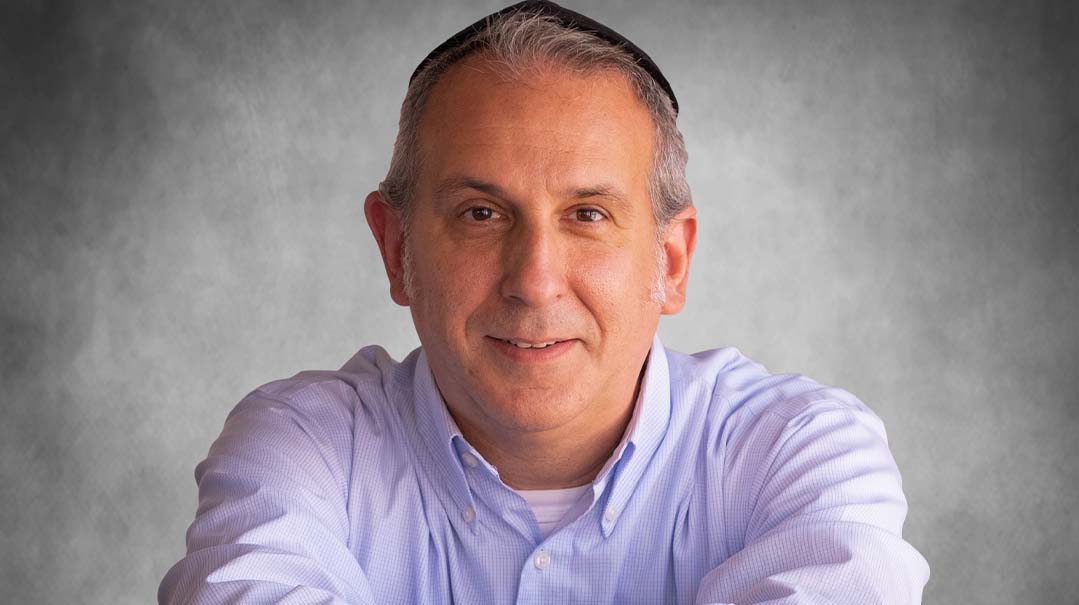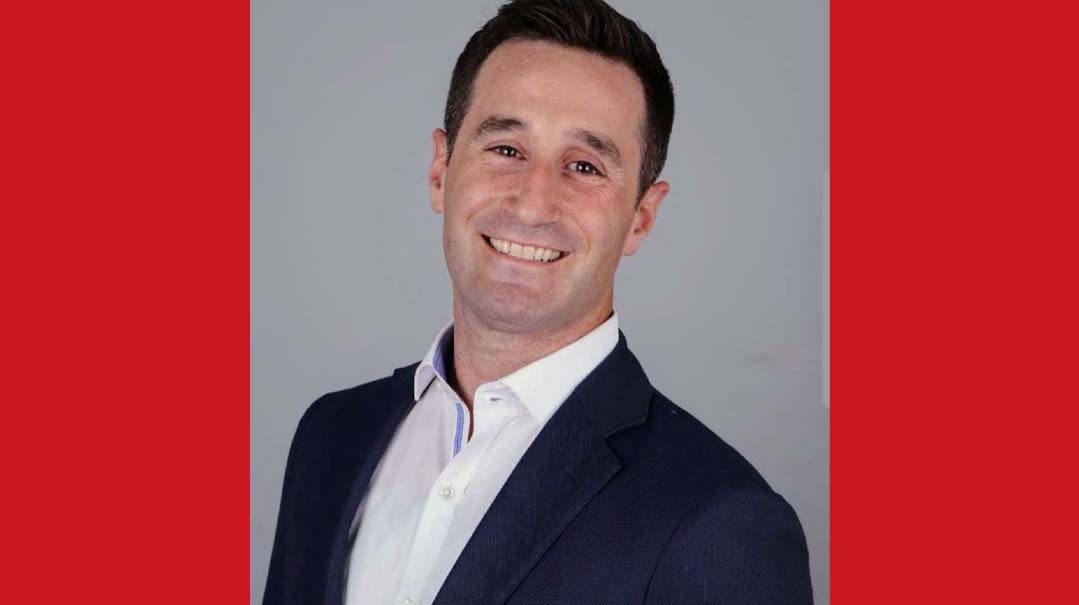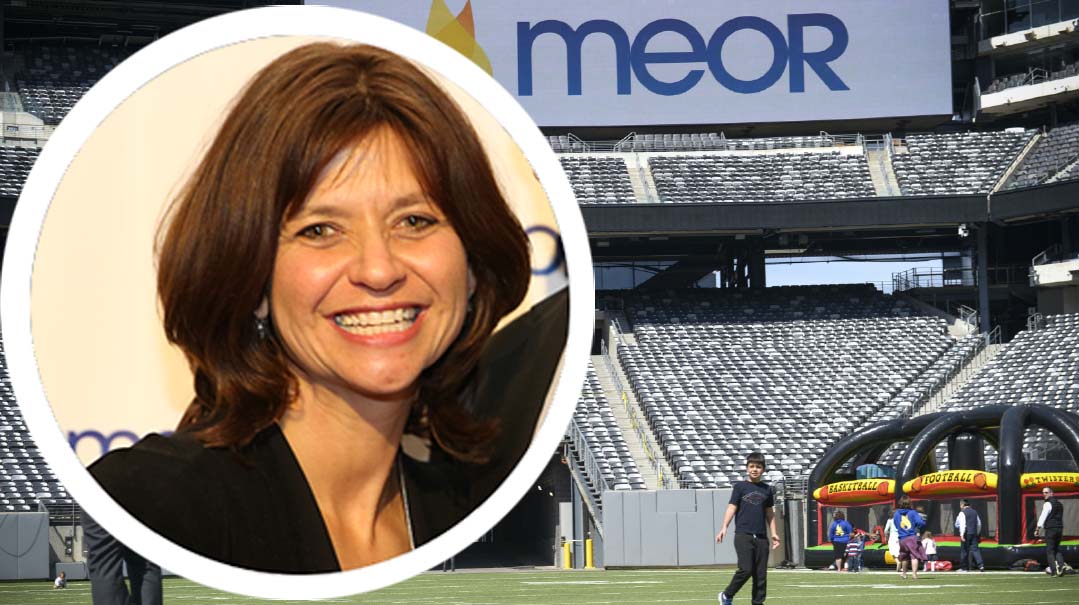Work/Life Solutions with Dovid Gabay

"Never focus on what your competitor is doing. Keep innovating, not imitating"

Who:
Dovid Gabay, senior vice president at Banquest Payment Systems (and Jewish music celebrity).
What:
In 2013, following a 12-year, full-time music career, Dovid joined his longtime friend, Kalmen (Kevin) Frisch at Banquest, and took on the challenge of revolutionizing the credit card processing industry. Focused on improving the overall bottom line for businesses, organizations, and schools, Dovid works with clients across the US on all of their credit card processing needs, and also meets with software companies to help integrate their payment modules into their online platforms.
Where:
Dovid grew up in Brooklyn and went to Yeshivas Ner Israel in Baltimore. He describes how, when he and his wife married in 2001, they were deciding where to move: They needed something “faster than Baltimore, but slower than Brooklyn.” So they settled in Lakewood, and 18 years later, he and his wife (along with eight new additions to their family) still live there. Lakewood, he says, has evolved along with its residents. “When I moved to Lakewood in 2001, Brooklyn seemed to be the mecca of Jewish business. Fast-forward to 2019: Lakewood has now evolved into a powerhouse of entrepreneurship, and major businesses are launching and thriving from within our community. It’s very exciting to see the growth firsthand among our clients, and I’m looking forward to seeing where it goes from here.”
Why:
I’ll be entirely transparent: I’ve been a major fan of Dovid’s since his debut album Legabay in 2006. And I know I’m not alone. The title track was the wildly popular theme song on a kiruv program I attended in Switzerland, and since then he’s been performing at some of the most prestigious concerts all over the world. Over the last few years, I’ve also been fascinated by his transition into the business world, where he continues to balance his time with learning and family, and has been blessed with tremendous success, making a kiddush Hashem in all of his professional interactions. I hope you’ll be entertained and inspired by Dovid’s journey too.
1 of 9 What opportunities or personalities played a role in your career?
First of all, let me tell you how I got started at Banquest. In the summer of 2013, after 12 years in the music industry, I was on a phone call with my good friend, Kalmen Frisch, who asked me if I was open to an opportunity in the business world — to join him at Banquest Payment Systems. I met with him and liked the concept of the credit card processing industry. Since I was a kid, I was always good with numbers. The industry in general has a very bad rap. It’s confusing, misleading, with hidden fees everywhere, along with salespeople too eager to make a quick buck, and has left many with a bad taste. He told me, “Dovid, if we can just be the opposite — transparent and honest — we can conquer an amazing hold in this industry.” I took that conversation and relayed the opportunity to my rebbi. He told me to try it for six to eight weeks, saying, “You don’t have to see hatzlachah right away, but you do have to see the potential for hatzlachah, and be able to answer the question: ‘Do I think I have what it takes to be successful in this line of business?’ ” And baruch Hashem he was right. My time with Banquest has been amazing so far. It’s great to see how fast our company is growing, and I’ve got a really great team supporting me.
People ask me about the transition from music to Banquest. I must say it was actually an eye-opening experience on several levels. When I did music full-time, I never understood why people are so busy running around and don’t have time to enjoy a good musical album. Even at concerts, I couldn’t believe it…. The guy takes his wife, or even his whole family, out to enjoy themselves, and he’s sitting there texting, not even paying attention to the show. But when I stepped into the business world, I realized that many times when people you’re trying to reach the whole day, or even for a full week or month, finally call or e-mail you back at this inconvenient time, it’s hard not to respond and simply let the call go to voice mail. So although I don’t necessarily agree with the mentality, today I can certainly understand where they’re coming from. There’s another basic difference: When I was doing music full-time, I would never push someone to use me for their simchah, because it’s a matter of personal taste. But at Banquest, there’s nothing subjective about it. I know with certainty that my company can save a business money or provide a perfect solution to make that business more efficient and improve their bottom line. When speaking with a prospective client, my goal is to try to help them understand the value I’m delivering. It’s a very different approach that I had to get used to.
So to answer the quesion, I’m the type of person who’s “lomeid mikol adam” — I always try to be a student of life and learn something from everyone and everything, even from the most mundane situations. I even have different rebbeim I go to for different areas of my life. So a lot of different people have played big roles in shaping my musical career as well as my business career. In my music career, I would say I learned a lot from Avraham Fried. We’ve performed together many times at various kinds of venues. I’ll never forget we did this one show in Toronto — here is a legend, a veteran of the industry, and at the time I was a relative newcomer. The show was running late in the second half, and he says to the organizer, “Cut three of my songs out and let Gabay do what he was scheduled to do.” No one was watching this private moment, and he didn’t get any applause for his gesture. It’s something that resonated with me for the rest of my career, and has given me the strength and confidence to do the same for others over the years. In my business career, working hand in hand with our CEO, Kalmen Frisch, has reinforced the fundamental principles of staying honest with yourself and with your clients, and keeping a sense of unwavering integrity even if it means losing a business opportunity. It’s something very rare to see in today’s world.
2 of 9 Which three character traits have played a key role in your career path?
I think my success in each of my careers was contingent on different traits. For music, the three were:
- Humility: When you’re singing spiritual messages, being haughty comes out in your vocals and performance, so it’s an absolute must to stay humble.
- Compassion: Going to sing at a hospital bedside or a house call to lift someone’s spirits requires you to relate and feel their pain in order for your visit to make a difference.
- Authenticity: Trying to make my own mark, always trying to be creative in my musical productions.
For business, I would say:
- Unwavering Integrity: This is first and foremost. Integrity is everything in business.
- Honesty: Staying honest (even if no one will ever find out).
- Perseverance: Consistency plus persistence is a recipe for success.
3 of 9 What do you do to relax, recharge, or simply have fun? How do you make time for that, and how often?
There is always so much going on between work, family, learning, and a million other responsibilities that unfortunately relaxing doesn’t happen often enough. But in the summer I definitely appreciate some downtime at the pool and some good BBQs.
5 of 9 If you were granted an extra three hours per day or a spare million dollars, what would you do with that time or money?
I’d most definitely take the three hours per day over the million dollars. I actually have a song on my last album, Hakol Letova, called “Moneh,” that resonated with a lot of people. The key words to the chorus are, “You can spend all your time making money, but all the money that you spend can’t make time.” It’s really the paraphrase of an ancient statement [the earliest source seems to be Rabbi Elazar HaKalir, but it’s quoted by several others, including the Noda B’Yehudah, Rebbe Nachman of Breslov, and the Chazon Ish. –Ed.] “Adam doeg al damav, v’eino doeg al yamav (A person is more concerned with his money than with his days).” It’s such a valuable lesson and the standard we’re taught to live by. What would I do with those extra hours? I’d probably use them for quality family time as well as learning. If you’re a productive person, the workday is long enough. There’s always more work, and there will always be more work, even if you add ten more hours to your day.
7 of 9 If you were asked to deliver a TED Talk watched by 50 million people, what topic would you choose to speak about? Why?
Make your life unique. Create your own message and leave your own mark. Before I put out my own albums, I made a few appearances on other musical recordings. One in particular was a project of Rav Shmuel Brazil. He was supervising in the engineer’s booth as I was recording his songs. After half of the first song was recorded, he walked into the vocal recording booth where I was, and told me to stop singing. He said very sincerely, “Dovid, close your eyes… think about what you’re singing. The words. The message. Try to connect to the emotion of the lyrics and understand what Dovid Hamelech was trying to say when he wrote these words. Now think about how the melody brings out that message.” He paused for a moment, and then said, “Now, try again.” This was a complete game changer for me — the next recording take was light years beyond whatever we did previously that day, because I believed in the message I was singing about. It was mine. I owned it! We rerecorded everything we’d done until then, and from then on, I’ve always made sure to sing — both in studio and live — with this concept in mind.
8 of 9 How do you navigate the tension between your deepest values and the business world?
I’ll give you an example. I once got a call to meet with a certain business owner. At the meeting, he explained that he had been processing quite a large volume of credit card transactions and there was a mega-financial opportunity for me to take him on as a client. The only catch was that he was running an operation that wasn’t in line with the industry’s guidelines. He knew that, and thankfully told me up front. We definitely would’ve been able to bring him on as a client and “look the other way” while turning a handsome profit, but I didn’t even have to think twice about it. I thanked him for thinking of me, but declined the opportunity immediately. He told me he understood and respected me for that.
9 of 9 If you were advising a young man/woman hoping to launch a career as an entrepreneur, which “do’s” and “don’ts” would you share?
Do: Always be a student. Read a lot. Be curious, ask a lot of questions. Knowledge of your space is extremely important. Master it! I’ve learned so much about my industry. When you’re sitting in a meeting in a room pitching your product or service to very smart and successful business owners, and they see that you really know your space, you will quickly become the go-to person.
Don’t: You can peek, and even look sometimes, but never focus on what your competitor is doing. Keep innovating, not imitating. Otherwise, you’ll always be trailing.
Originally featured in Mishpacha, Issue 770. Moe is the founder and CEO of Winfluencers, an early-stage start-up that empowers micro-influencers to monetize their passion. Previously, he was the head of BizDev for Hometalk, strategy consultant for Deloitte, and regional director for the Lauder Foundation. He holds an MBA and semichah, and published his first book, The Gift of Stuttering (Mosaica Press, 2016). He also teaches a daf yomi shiur, produces inspirational videos for Aish.com, and gives lectures to audiences worldwide. Moe lives in Ramat Beit Shemesh with his wife and children.
Oops! We could not locate your form.



